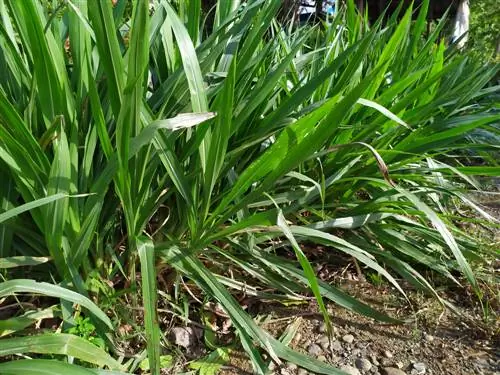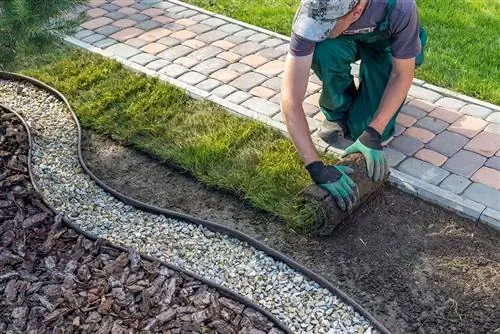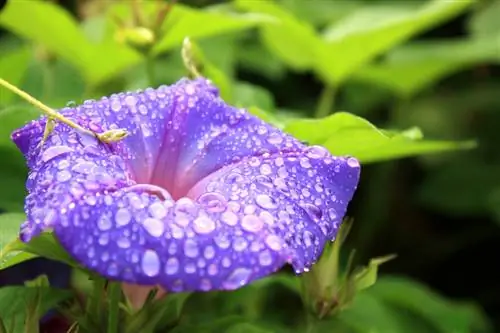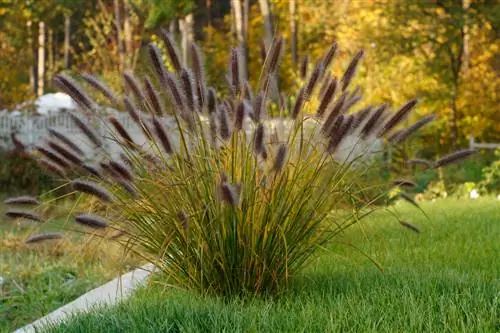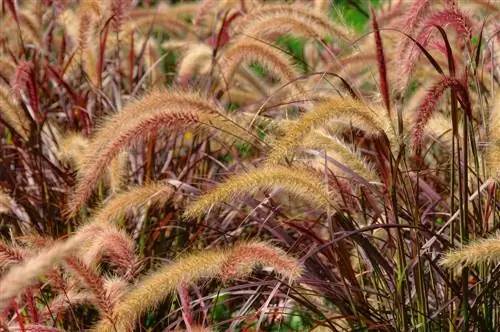- Author admin leonars@hobbygardeners.com.
- Public 2023-12-16 16:46.
- Last modified 2025-01-23 11:22.
The Pennisetum grass creates eye-catching focal points in the garden all year round. It becomes an attraction, especially in winter, when the panicles are covered in hoarfrost. When spring begins, it sprouts again and needs a little care. You can find out how to promote he althy bud growth in this article.
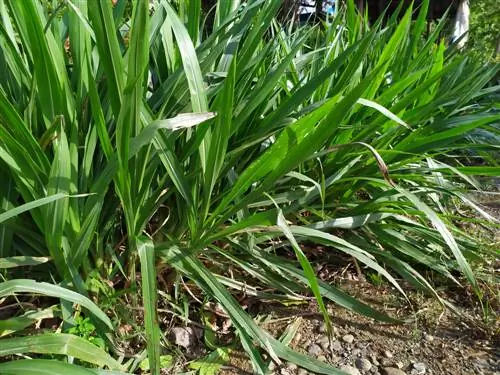
How do you promote the budding of Pennisetum grass?
To promote he althy shoots of the Pennisetum grass, remove the winter protection in early spring, cut off dried leaves just above the ground and, if necessary, divide the plant in spring by digging up the root ball and separating it into several parts.
Preparing for spring
In order for the grass to sprout vigorously, you need to give it some attention in early spring:
- As soon as the temperatures rise and the risk of persistent night frosts has passed, the winter protection should be removed.
- After the long winter, the leaves that are not cut back in autumn are dry and easy to remove. If you cut this off just above the ground, Pennisetum will grow quickly and strongly.
- Wear gloves when doing this work, as the edges of the leaves of the robust ornamental grass can be razor-sharp.
Pruning prevents the dead parts of the plant from getting tangled up with the young shoots. That would permanently hinder new growth.
If the Pennisetum grass sprouts, it can be divided
Over the years, Pennisetum forms impressive clumps that can become so large that the growth of neighboring plants is disturbed. In spring, shortly after sprouting, you can lift them out of the ground with a spade and divide them.
- Before dividing, the dried stalks must be cut off a hand's breadth above the ground.
- With very large clumps, separating them with a spade doesn't always work. For this you may need an ax (€29.00 on Amazon) or saw.
- Divide the bale into three or four pieces.
- Place them a little deeper in the soil, this will ensure strong new shoots and lush growth in the first year.
Tip
Don't plant the Pennisetum too densely in the bed and give it enough space to spread out. This also promotes he althy budding.

